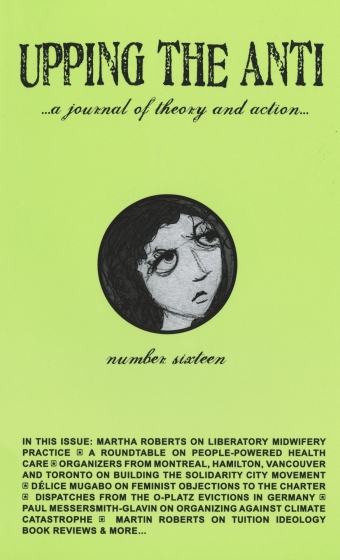Remembering Syria
Dear UTA,
Ali Mustafa, the photographer, journalist, and activist, gave an interesting interview in Upping the Anti in July 2013 – a few months before he was killed in the Syrian government’s shelling of Aleppo. In the interview, Ali discussed at length the complexities of the conflict in Syria, as well as the aspirations of many Syrian people for freedom, dignity, and equality. He gave his life in solidarity with the Syrian people, in part by documenting the daily horrors that they face as punishment for their stance against the regime. And while his solidarity work cost him dearly, there are many reasons and ways in which activists should continue to stand and work in solidarity with the Syrian people.
In March 2011, Syrians saw the fall of various regimes in the region and started imagining the possibility of change in their own country by daring to think and demand a say in their lives and communities. Protesters were met with brutal repression, disingenuous support, and negative foreign interference. As the revolution went on, Syrians felt more and more isolated. They were fighting their government, extremist groups trying to hijack their revolution and country, and regional powers who were jostling for control and pitting various groups against each other. Meanwhile, intervening governments did little to help – their false promises and empty threats did more harm than good. On top of these obstacles, Syrians were met with indifferent publics as well as skeptical and even hostile activists from whom they had expected some solidarity, or at least moral support.
The support that Syrians have received has been conditional and divisive, and they have taken it grudgingly because their situation has become more desperate and their options have decreased. The willingness of extremist, fundamentalist Muslim groups and states to provide funding and logistical support (albeit limited) while secular, leftist groups stand on the sidelines, has skewed the way in which Syrians see themselves, the revolution, and the world. It has contributed to a shift towards more sectarian thinking and reshaped the discourse around the revolution from one that is about freedom, dignity, and justice, to one that situates the revolution as a jihad against Alawites, Shiites, and others.
Syrians nonetheless keep seeking ways to reach out to each other and to the rest of the world. On Fridays – in spite of all the violence, displacement and destruction – Syrians in various places around the country continue to go out and protest, carrying banners in solidarity with towns that are being shelled or are under siege. Through social media, they document and share these acts of solidarity with each other. Even if only virtually, seeing that they are not alone provides immeasurable comfort and strength to isolated activists and communities. Syrians are also reaching out to the world by creating posters and videos in English, which document not only their struggle, but also express solidarity with victims of violence around the world.
With so many Syrians organizing and communicating with each other and the world through open and accessible online forums, linking with these groups has never been easier. Different kinds of solidarity work can be done by non-Syrian activists. For example, activists can conduct a vigil, commemoration, or protest, film it, and then post it on Facebook with a solidarity message as a way to provide moral support. An important distinction to make here is between apolitical and non-contextualized solidarity campaigns such as #withSyria, which portrays Syrians as victims of a humanitarian crisis, and messages of solidarity that support Syrians as active agents in a struggle for their self-determination.
Activists can also speak to and raise the voices of different Syrian groups by creating forums for new and marginalized Syrian voices to speak about their experiences and desires, including women and youth groups. At the onset of the revolution, governments self-defined as friendly to the Syrian cause demanded that Syrians speak with one voice and form a transitional government. This pressure created an opposition that does not represent the revolution or the Syrian people, but instead serves as an easy interlocutor for the West.
Rather than strengthening the revolution, the demand to have a unified opposition stifled dialogue and created a dynamic in which people are focused on holding positions rather than on building a movement or gaining grassroots legitimacy. Strengthening dialogue, creating new avenues for different groups to express their ideas, and broadening representation among Syrians would allow for a healthier civil society, revolution, and Syrian left.
Canadian activists can also engage Syrians in discussions and debates on ideology, strategy, and tactics, thereby helping to strengthen their analysis. Syrian activists would benefit from opportunities to engage with other activists from around the world to further develop their own ideas of what they want for Syria, not as students who need tutelage from more evolved movements but as comrades who would benefit from a dialogue partner in order to adapt to a complex and evolving context.
No one expects activists to come and fight in Syria. Most do not welcome foreign fighters of any conviction and Syrians are well aware of the danger of doing political, humanitarian, and journalistic work in Syria for locals and foreigners alike. Syrians also know that the revolution is theirs to fight, win, or lose. What they want first and foremost is an acknowledgement, a respect, and an engagement with their right to demand freedom, justice, and dignity.
Sincerely,
Salma Kahale
Beirut, Lebanon

